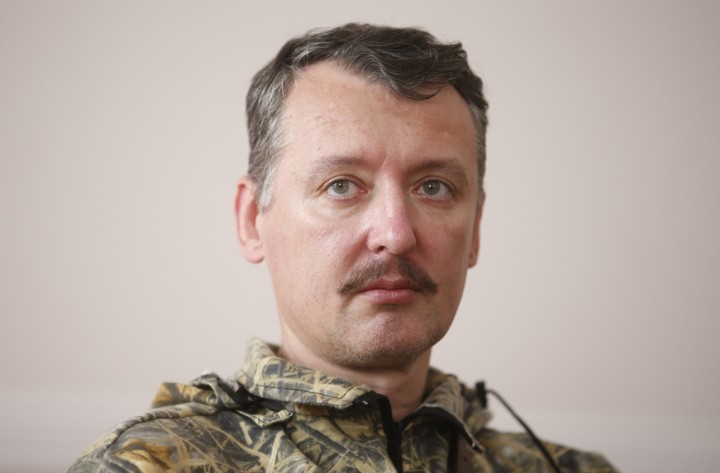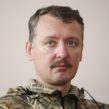
Tremors in the ‘Donetsk People’s Republic’s’ Military and Political Hierarchy (Part Two)
Publication: Eurasia Daily Monitor Volume: 11 Issue: 139
By:

Read Part One here.
On the ground in Ukraine’s east, the most significant Russia-backed separatist field commanders continue operating autonomously from Igor Girkin/Strelkov—the self-proclaimed military leader of the pro-Russia rebel forces and “defense minister” of the “Donetsk People’s Republic [“DPR”].” They basically “coordinate,” taking orders from him conditionally on a case-by-case basis, and conducting joint operations ad hoc. Following his withdrawal from Sloviansk to the city of Donetsk on July 5, Girkin/Strelkov announced his intention to establish a unified command under his own authority as “minister,” commander-in-chief, head of a “national security council,” city commandant of Donetsk, and even as chief of a “single military command of Novorossiya,” which would bring the Donetsk and “Luhansk People’s Republic’s” forces under his overall command (see EDM, July 14).
Those intentions remain unfulfilled to date. Meanwhile, Vladimir Antyufeyev—who on July 28 declared himself “acting prime minister” of the “DPR” as well as “acting commander-in-chief” of “DPR’s” forces (see Part One)—came in with supervisory powers over “state security” and “internal affairs” troops, and now with an acting defense minister’s title, or perhaps mere claim. As a Lieutenant-General, ranking far above Lieutenant-Colonel Girkin/Strelkov and the other commanders, Antyufeyev would be well placed to arbitrate among them. Apart from Girkin/Strelkov, the “DPR’s” most significant commanders are Aleksandr Khodakovsky and Igor Bezler.
Bezler, formerly a Lieutenant-Colonel in Russia’s special forces (akin to Girkin/Strelkov), took over the city of Horlivka in mid-April, operated for the most part separately from either the Slovyansk or the Donetsk commands, and ultimately left the city with some of his troops on or about July 26, as Ukrainian forces closed in. Bezler is said to be in Moscow at present. Remaining “DPR” fighters in Horlivka dangerously mined the Stirol chemical plant, owned by Dmytro Firtash, in that city. Bezler had made a specialty of collecting hostages for trade-offs. Following his departure, all remaining seventeen hostages were freed in return for the release of one Russian militant (Ukraiynska Pravda, July 28).
Khodakovsky, formerly a top officer of Ukraine’s State Security Service (SBU) in the Donetsk province, switched sides after the fall of Viktor Yanukovych’s presidency and Russia’s paramilitary intervention. Khodakovsky became “DPR state security minister” and concurrently the commander of the “Vostok” battalion, the strongest force in the city of Donetsk until the arrival of Girkin/Strelkov’s force from Slovyansk. Their relations became so uneasy that Khodakovsky relocated to Makiyvka with a part of his force. Following the shooting down of the Boeing 777 on July 17, Khodakovsky told Reuters that he had heard from fellow officers about Russian BUK anti-aircraft missile systems delivered to “DPR” forces (Russkaya Vesna, July 10; RIA Novosti, July 28, 30).
Aleksandr Boroday (former “prime minister of DPR”), Girkin/Strelkov, and Antyufeyev are all carpet-baggers sent in from Russia (the first two of them argue that this is normal, as the Donbas and indeed Ukraine should rightfully belong to Russia). Symbolically, the local founding father of the “DPR,” Denis Pushilin, became chairman of its “parliament” in May. Having previously worked as a local agent for the MMM financial pyramid scheme, Pushilin was twice targeted (by shooting and a car bomb) in Donetsk in May and June, moved to Moscow by mid-June and sent a letter of resignation on July 18. The “parliament” has now elected an obscure veteran communist, Boris Litvinov, as chairman (RIA Novosti, dnr.today.news, July 29).
Russia wants such “representatives of the eastern regions” to participate in negotiations on settling the “crisis in Ukraine” and designing a “federal” constitution, on the back of Russia’s proxy forces. Moscow has already put Boroday forward for that political role, accepted by Berlin and the OSCE with alacrity. In fact, Russia has completely failed to assemble a political team that could represent this part of Ukraine in any negotiations.
President Petro Poroshenko’s peace plan envisages the disarmament (preferably voluntary) of pro-Russia forces in Ukraine’s east, political discussions with representatives of local society and interests, free elections to local government bodies, and parliamentary elections to be held here as part of Ukraine-wide elections. Hence the vital need to complete the anti-terror operation successfully by early autumn.




